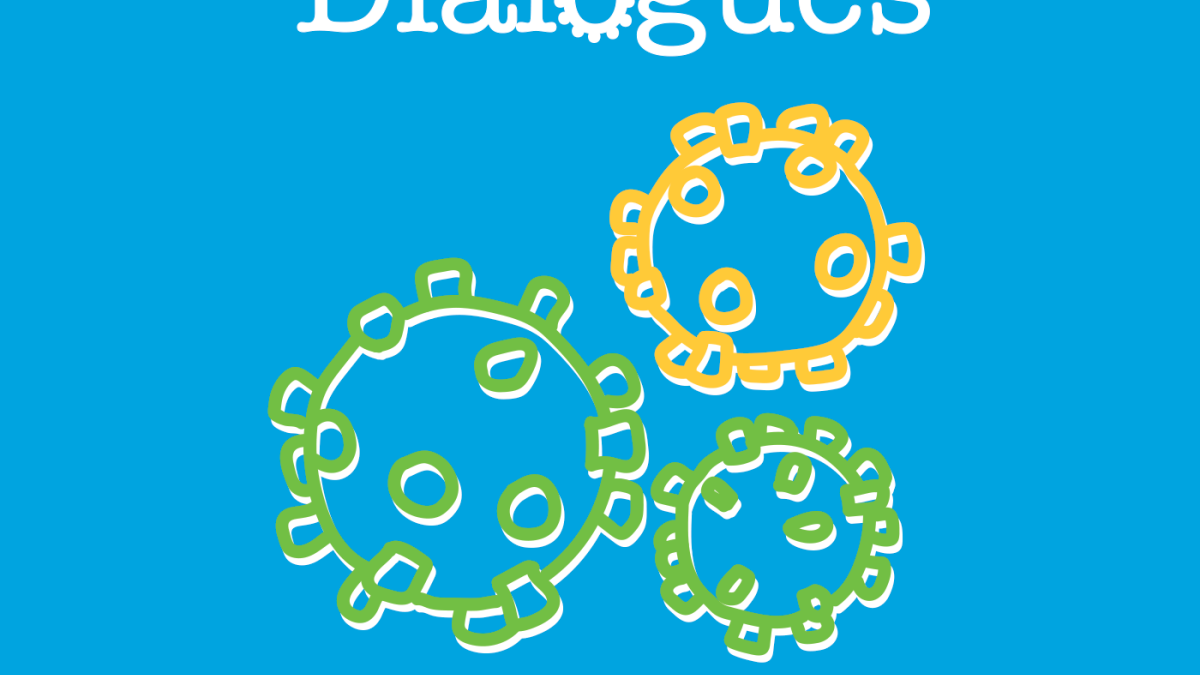New podcast gives perspective on current crisis through works of literature

You can listen to the Pandemic Dialogues podcast on iTune, Spotify or PodBean.
In response to the COVID-19 pandemic, Arizona State University professors Trevor Shelley and Luke Perez have begun a multipart discussion of Albert Camus' Nobel Prize-winning novel "The Plague" in the new podcast series Pandemic Dialogues.
Written in the 1940s, Camus' novel reflects his view of medical disease as an analogue for understanding the decline of political order. In their podcast, Shelley and Perez discuss the ways in which the current crisis has led many people to look to literature as a way to understand how the fabric of our social world is woven.
“The whole idea emerged from a discussion I had with Luke when I mentioned I was thinking of swapping out one of the assigned texts in my CEL 100: Great Ideas on Ethics and Politics course to read Camus' 'The Plague,'” said Shelley, a postdoctoral scholar in the School of Civic and Economic Thought and Leadership.
“I read it years ago in grad school and it stuck with me as a rich text that captures a variety of moral and intellectual challenges and different responses in the midst of crisis. It's a book for which the plague means many things — an actual bacterial epidemic, moral corruption, participation in political tyranny and the human condition at large,” Shelley said. “It seemed appropriate to visit it during our time of COVID-19 crisis to garner some literary and imaginative distance on our present circumstances to think through some of the immediate and larger questions we're facing.”
Looking for a way to reach a broader audience beyond just one class, the professors decided to do something they had never done before: start a podcast. Together (virtually), Shelley and Perez started reading the five-part book, setting up the multi-episode conversation of "The Plague."
“What attracted me to read Camus, and eventually start a podcast on it, is that Camus uses the idea of an entire town in quarantine to investigate how people handle the catastrophe,” said Perez, an assistant professor at the School of Civic and Economic Thought and Leadership. “Put another way, the plague in Camus' novel is a foil for studying human nature.”
Produced in a way that allows listeners to follow along, the podcast looks at particular passages of the text that lead to larger questions in the areas of politics, philosophy, theology and economics.
“If someone were to discover Camus today, next month or next year, he or she could still follow along with our podcast in what would be 'real time' for them,” said Perez.
“We hope that the podcast encourages listeners to read this book and others mentioned, to engage with our comments and remarks so as to question — even challenge — what we say, and thus come up with their own interpretations,” said Shelley.
You can listen to the Pandemic Dialogues podcast on iTunes, Spotify and PodBean.
More Arts, humanities and education

School of Social Transformation faculty member assumes new title with NSF
School of Social Transformation faculty member and Founding Executive Director of the Center for Gender Equity in Science…

ASU's Neal Lester reflects on life, death of poet Nikki Giovanni
When Neal Lester heard on Monday that poet and activist Nikki Giovanni had died, the news hit hard.Lester, the founding director…

Learning by stepping outside
By Adriana MaestasAmid a world increasingly captivated by all things digital, more than 200 Arizona teachers have crafted…